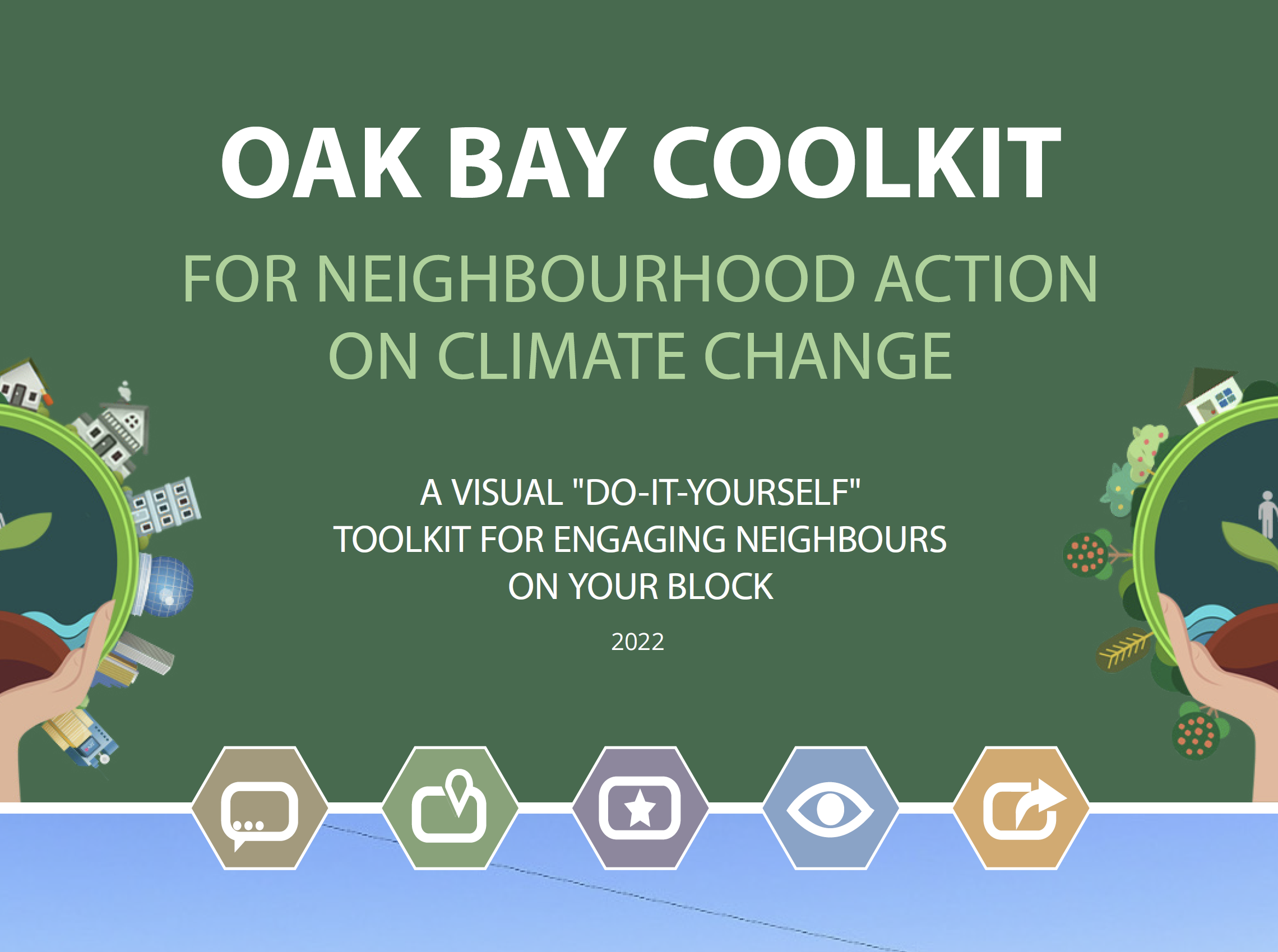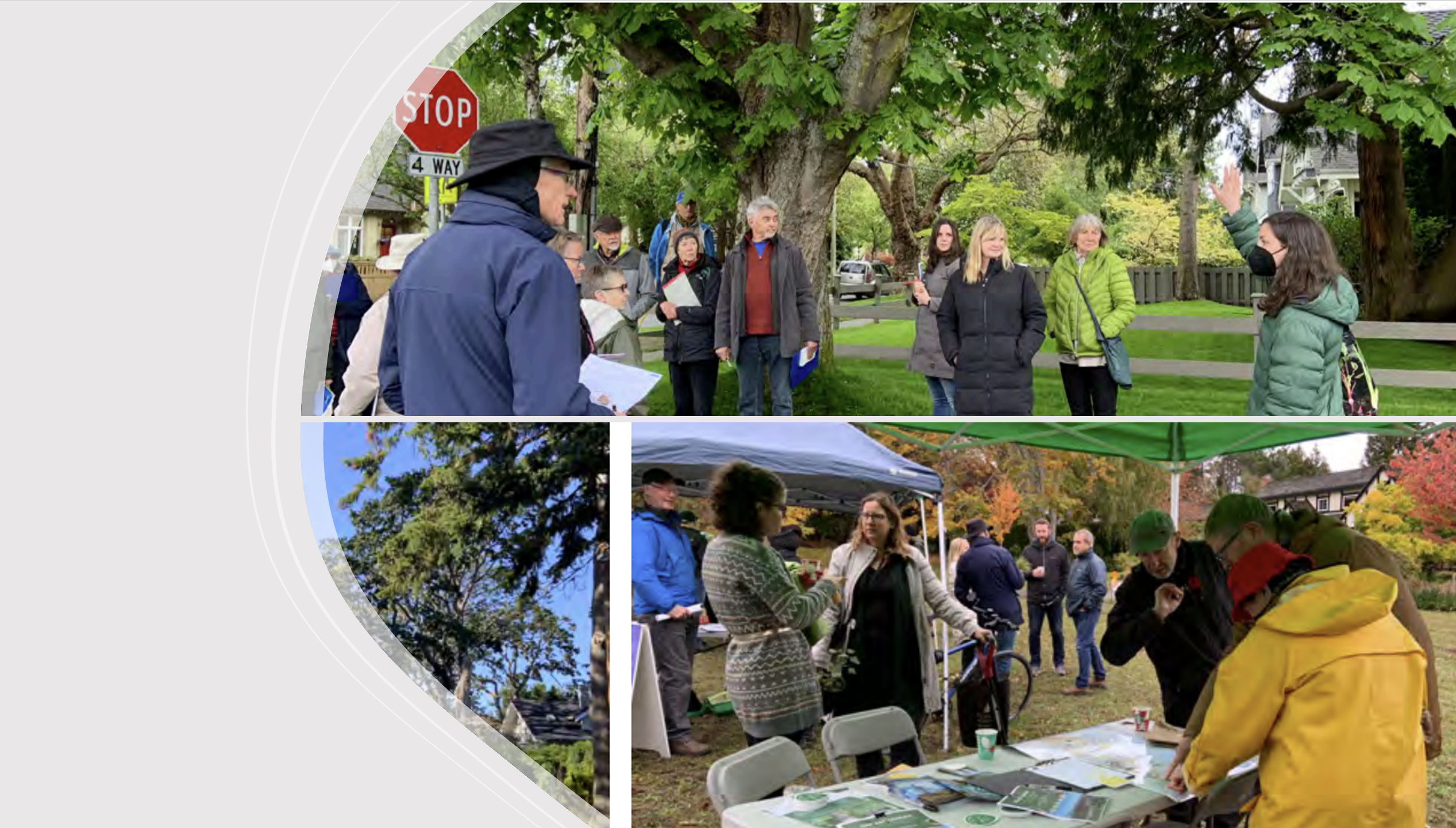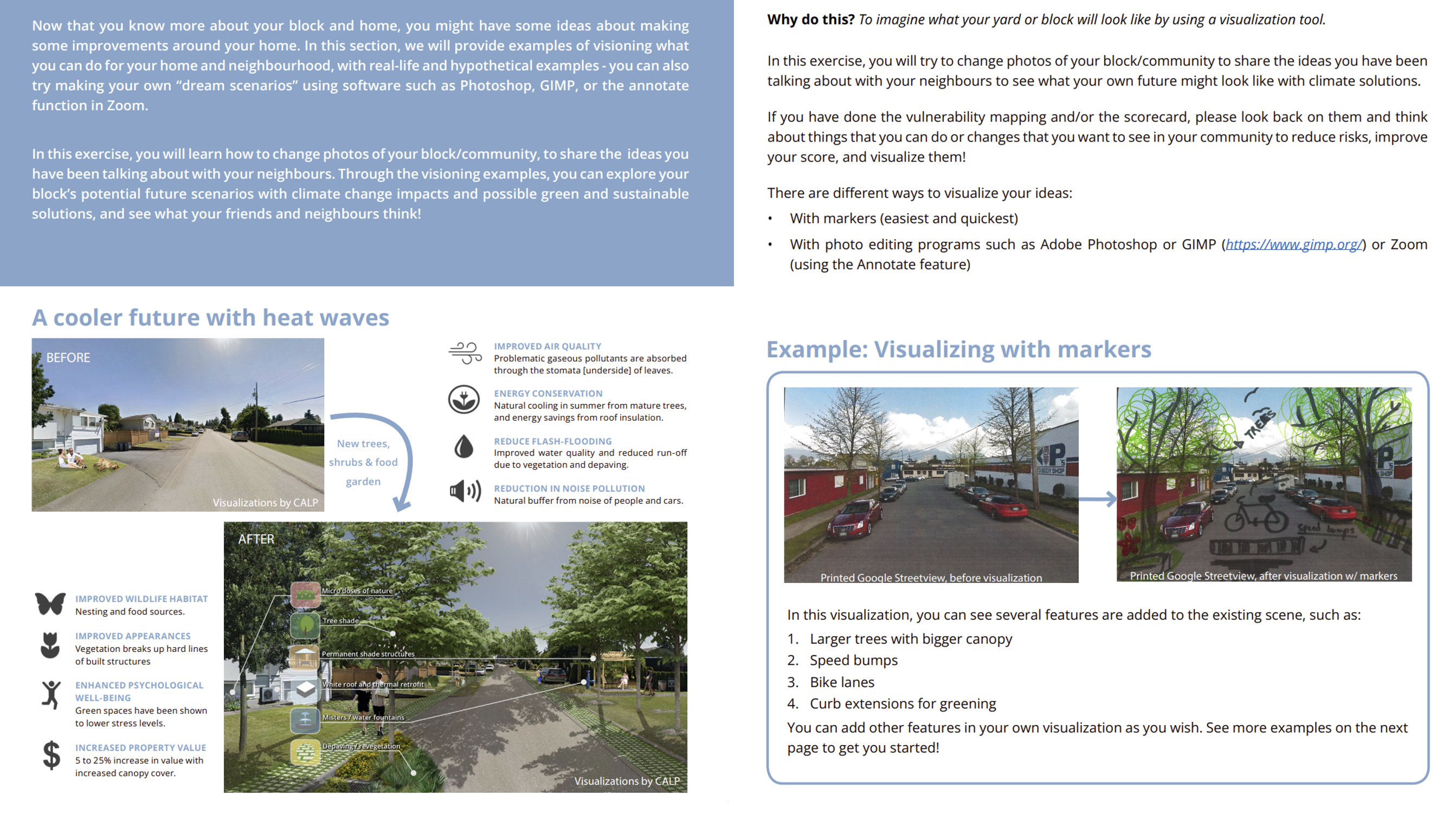
The District of Oak Bay is excited to launch the Oak Bay Coolkit program. The Oak Bay Coolkit program is a joint initiative between the District and the Collaborative for Advanced Landscape Planning at the University of British Columbia’s (UBC) Faculty of Forestry, and is designed to engage residents on climate-change solutions in the community, with support from the District and community organizations or hubs.
The Oak Bay Coolkit is intended to mobilize individual and neighbourhood climate action through participation in a series of fun and interactive engagement activities, including:
- neighbourhood conversations,
- local asset and climate vulnerability mapping,
- carbon footprint calculators,
- visioning exercises, and
- developing localized climate action plans.
The ultimate goal of the 3 year Coolkit Program is to reduce carbon footprints and help create climate proof, resilient neighbourhoods.
In Year 2 of the popular Coolkit program, the District is looking for more climate champions in the community who are interested in making a positive difference through developing and promoting household and neighbourhood solutions for climate change.
Year 1 Results
Year 1 Program achievements included:
• An accessible and attractive Coolkit package customised to Oak Bay, available as a DIY resource free to all residents on the Oak Bay website, with a reasonably high media profile across the community
• District staff from across departments trained in the Coolkit process and involved in community workshops as co-facilitators and/or advisors to champions
• Program promotion through: tree-planting events attended by Council members, staff, & Coolkit champions; support from Oak Bay Neighbourhood Association; media coverage from CBC & local media; and presentation/workshop at ICLEI’s national Livable Cities Forum in Victoria in 2022
• Well-attended week-end workshops and climate walk, with much collaboration within and between neighbourhood groups, resulting in a network of trained Oak Bay Coolkit champions and multiple local climate action plans,
Who participated?
A total of 46 participants registered for the Oak Bay Coolkit program, representing most Oak Bay neighbourhoods, with 23-25 people attending each of the 3 Workshops (plus District staff, Council members, and other observers). A range of participants took the program, including:
• Several skilled community leaders/organizers (with different levels of experience),
• Many who were predisposed towards greener lifestyles
• Some with previous volunteer experience
• Neighbours and family members of other participants
• Members of community organisations

What did the participants learn:
• Improved understanding of the “Big Moves” on climate actions by residents that align with the Oak Bay Climate Action Working Group (CCAWG) recommendations to Council
• Improved awareness of their individual carbon footprints
• Recognition of the value of collective climate action at the local scale
• Capacity-building skills gained in understanding local climate impacts and how to engage others: several groups designed and implemented innovative events and workshops, using visual learning tools like mapping and visualizing solutions to stimulate & record residents’ ideas.
• Bonding with neighbours and community through fun, social, hands-on activities
• Increased agency and motivation to make changes and collaborate with the Oak Bay District on climate issues/solutions addressing both private and public land.
• Champions acquired improved insights on other residents’ perceptions (pros and cons) of climate action.
What we heard from participants:
• Enthusiasm for the Coolkit Champion program and collectively-developing local climate action plans
• Strong support and advice from existing community orgs., eg, Community Association of Oak Bay
Resources
Download Oak Bay Coolkit Year 1 Technical Report (2 MB)
Download Oak Bay Coolkit Handbook (21.6 MB)

An example of visioning your block by participants